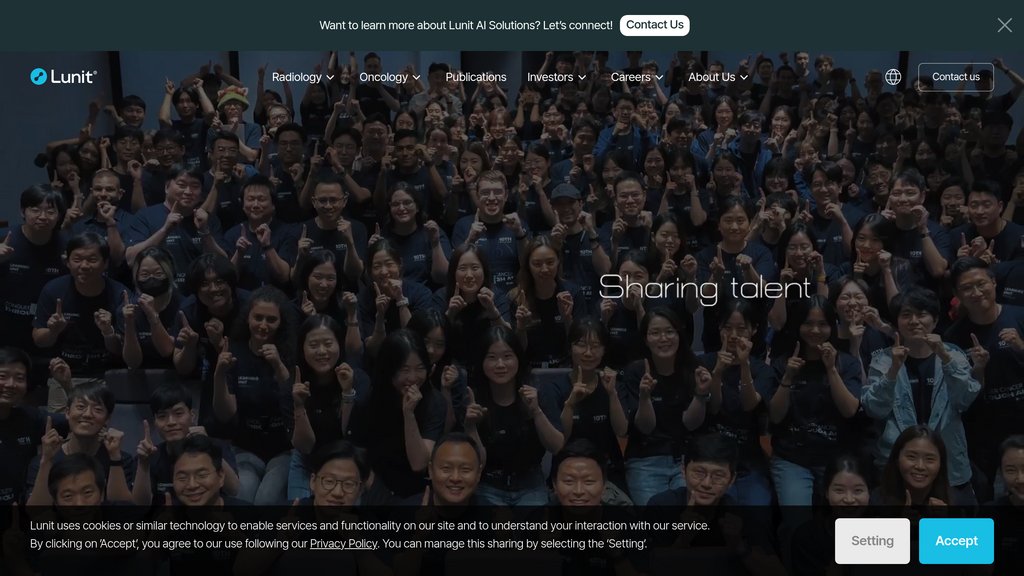Lunit
Medical imaging analysis for early cancer detection and treatment planning
Introduction
What is Lunit?
Lunit creates sophisticated AI software that transforms cancer care by delivering highly accurate medical image interpretation. The company's innovative solutions span chest radiography, mammography, and digital pathology, empowering healthcare professionals to spot cancers at earlier stages and pinpoint patients who may respond best to immunotherapy. These tools have undergone rigorous clinical testing, received FDA approval, and been adopted by numerous medical facilities globally, providing radiologists and pathologists with faster, more dependable diagnostic support.
Key Features:
• Exceptional Detection Precision: Lunit INSIGHT CXR achieves 97-99% accuracy in identifying 10 frequent chest X-ray abnormalities, while INSIGHT MMG detects malignant breast lesions with 96% precision.
• Detailed Immune Environment Analysis: Lunit SCOPE IO examines tissue specimens to categorize immune patterns and measure tumor-infiltrating lymphocytes, facilitating immunotherapy strategy development.
• Smooth Clinical Integration: Designed to fit effortlessly into existing medical workflows, cutting down radiologist interpretation time and boosting screening productivity.
• Extensive Real-World Validation: Built upon millions of clinical cases and proven in diverse healthcare environments, showing enhanced cancer identification and fewer missed diagnoses.
• International Adoption and Regulatory Approval: Deployed across 600+ medical centers in 40 nations with FDA clearance, guaranteeing adherence to standards and consistent performance.
Use Cases:
• Early Cancer Identification: Assists radiologists in discovering lung and breast cancers at initial stages using advanced analysis of chest X-rays and mammograms.
• Immunotherapy Candidate Selection: Supports oncologists in selecting patients with higher likelihood of immunotherapy response through comprehensive tumor immune profiling from pathology images.
• Radiology Department Efficiency: Accelerates case review and enables smart case prioritization to enhance productivity in high-volume radiology practices.
• Pathology Data Quantification: Delivers unbiased, measurable evaluation of tumor microenvironments to advance both clinical practice and research initiatives.
